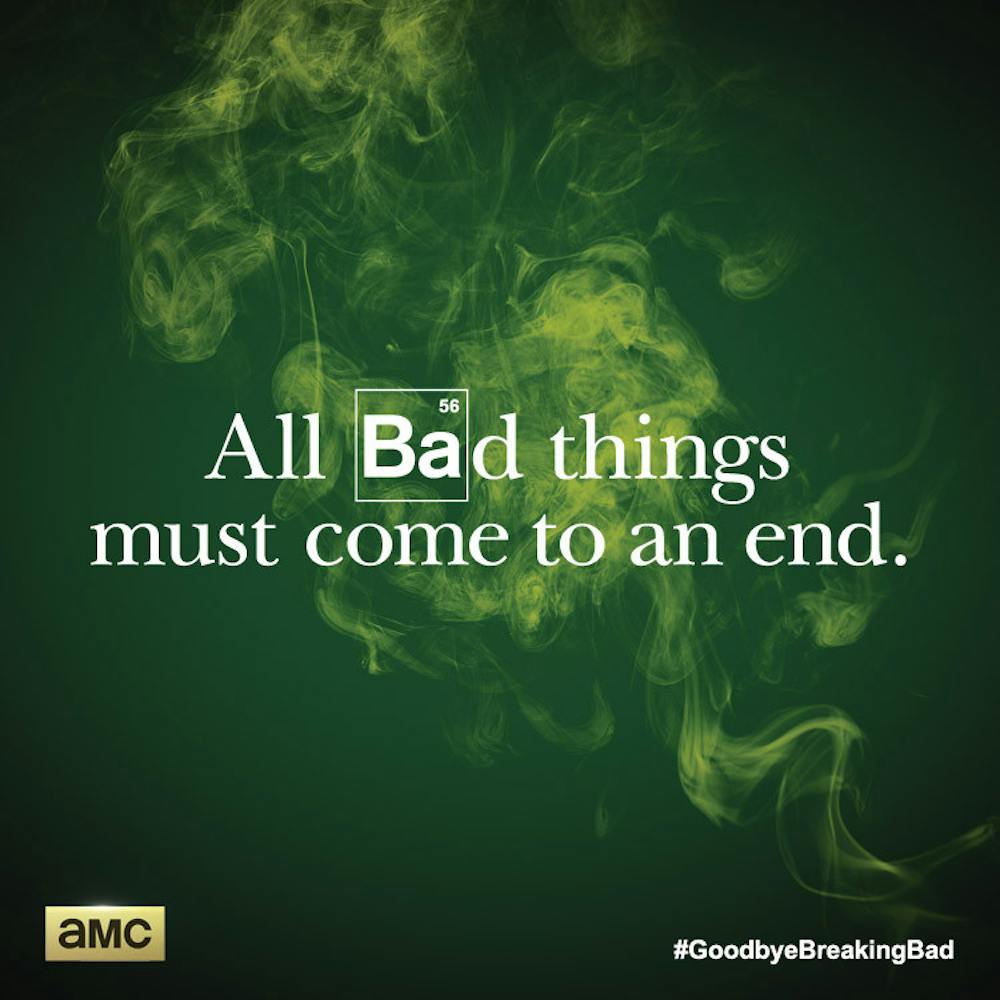
If you have not caught up on “Breaking Bad,” take note that the following contains spoilers concerning the series finale of the show.
After five years and just as many seasons, Walter White is dead, bringing “Breaking Bad” to a close after the series finale, “Felina.” The title “Felina” serves as an anagram for “finale,” but also possibly the phrase “blood, meth and tears” if divided into scientific elements as many fans have speculated. The series came to a gripping conclusion as Walter found a way to give his family money, get revenge on the Schwartzes, save Jesse, and kill Jack and the rest of his brotherhood. Although the show has been notorious for its ambiguity, the ending was very definite.
Was this a satisfying conclusion, though? Some would argue that ambiguity would keep the fans talking, but from the very start everyone knew how the series would end, even if the specifics were a bit hazy. Walter White had to die. There is an adage that if you introduce a gun into a story, it has to be fired. Not only does that apply to the M60 that Walter White used to kill Jack and his crew, but it applies to Walter’s cancer and future. The very first time the audience is introduced to Walter, he is a dying man. The lung cancer he has developed, despite never smoking, will kill him in a year. Walter is able to overcome the cancer at first, but he becomes helpless when the cancer returns. If Walter didn’t die in the final confrontation that concluded the series, he would be dead from the cancer in a month.
That is part of what makes the finale of “Breaking Bad” so moving and poignant. There are very few loose ends left and nothing feels like it was thrown out there for the sake of publicity. Perhaps this means the episode was predictable in places, but it made for smart storytelling that never “jumped the shark,” so to speak. Despite the predictability, there were still some surprises. After the penultimate episode, “Granite State,” there was speculation that Walter would use the M20 to kill Gretchen and Elliot Schwartz. The beginning of the episode even implies Walter’s murderous intentions. Instead, in a twist that exposes more of the relationship between the former friends and allows Walter to give money to his family, he brings them $10 million with the instructions to give it to his son on his 18th birthday. It wouldn’t be “Breaking Bad” without a Heisenberg trick, this time in the form of Badger and Skinny Pete pretending to be the “best hit-men this side of the Mississippi” with just a few laser pointers.
The final moments were just as poignant as those leading up to it. Jesse is able to exact revenge on the man who murdered his girlfriend and an innocent young boy. However, when given the choice to kill Walter, Jesse walks away, proving himself to be redeemable. Walter is not so lucky, receiving a fatal gunshot wound that ends his life before it can be redeemed. Even if time was not on his side, it is doubtful he could ever redeem himself for the lies, murders and ruined lives caused by the teacher turned kingpin. Even if redemption is no longer an option, the series ends on a bittersweet high note. Walter finally admits that, while he was trying to get money for his family, he did everything for himself. With a hint of pride, he tells his wife that he was good at what he did. She may not have forgiven Walter, but there is a sense of appreciation that he finally was able to be honest.
As Walter makes one final lap around the lab he helped design, the look of pride comes across his face once more as “Baby Blue”, by Badfinger, begins to play. Walter collapses, dead on the floor as the police surround him. Walter White was a dead man from the beginning, but left a legacy that will be forgotten by no one, and that is exactly how he wanted it.





